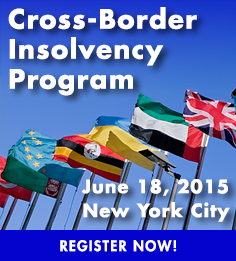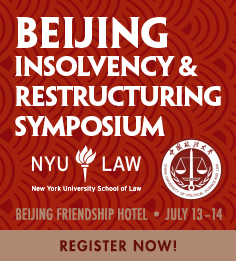|
|||||||
► In This Issue: |
|||||||
|
Second Circuit Prioritizes Plain Language of the Bankruptcy Code over Comity Principles
The U.S. Court of Appeals for the Second Circuit recently held that a bankruptcy court must conduct a § 363 review of a chapter 15 debtor’s sale of U.S. assets, even if the sale was previously approved by a foreign court. Although it acknowledged that comity is an important consideration in a chapter 15 proceedings, the Second Circuit determined that § 1520(a)(2) “acts as a brake or limitation on comity” by requiring bankruptcy courts to conduct the § 363 review. In Krys v. Farnum Place LLC (In re Fairfield Sentry Ltd.), Fairfield Sentry Ltd., a British Virgin Islands (BVI) investment fund, invested approximately 95 percent of its assets with Bernard L. Madoff Investment Securities LLC (BLMIS). After Bernard L. Madoff confessed to using BLMIS’s customer funds in furtherance of a massive Ponzi scheme, the U.S. bankruptcy court placed BLMIS into a Securities Investor Protection Act of 1970 (SIPA) liquidation. Shortly thereafter, the High Court of Justice of the Eastern Caribbean Supreme Court (the “BVI court”) placed Fairfield Sentry into liquidation and appointed Kenneth M. Krys as liquidator. In June of 2010, Krys sought the U.S. bankruptcy court’s recognition of the BVI liquidation under chapter 15, which was granted. Fairfield Sentry filed three claims in BLMIS’s SIPA liquidation and eventually reached a settlement with the BLMIS trustee for an allowed claim in the amount of $230 million (the “SIPA claim”). During the summer of 2010, Krys conducted an auction for the sale of the SIPA claim. Farnum Place LLC was the highest bidder with an offer to purchase the SIPA claim for 32.125 percent of the allowed amount. Later, Krys and Farnum executed a trade confirmation for the sale of the SIPA claim, which required the approval of both the U.S. bankruptcy court and the BVI court. As luck would have it, only three days after the signing of the trade confirmation, the BLMIS trustee announced a settlement that would result in the value of the SIPA claim increasing from approximately 32 percent to more than 50 percent of the allowed portion. Due to the increased value of the SIPA claim, Krys requested that the BVI court disapprove the sale to Farnum because it was no longer in the best interests of Fairfield Sentry’s estate. Although it approved the trade confirmation, the BVI court ordered Krys to bring the trade confirmation before the U.S. bankruptcy court for review. |
|||||||
|
Annual Spring Meeting Report and Materials The International Committee is pleased to announce that they had another successful year at the 33rd Annual Spring Meeting! The committee partnered with the Financial Advisors & Investment Banking Committee to host a session titled Structuring Cross-Border Deals to Protect Creditor Interests. Panelists for the session included Gilberto Deon Correa (Moderator) of Souto, Correa, Cesa, Lummertz & Amaral Advogados in Porto Alegre, Brazil; Van C. Durrer, II of Skadden, Arps, Slate, Meagher & Flom LLP in Los Angeles; Soneet R. Kapila of KapilaMukamal, LLP in Fort Lauderdale, Fla.; Neil Lupton of Walkers in Grand Cayman; and Paul Melville of Grant Thornton LLP in Chicago. |
|||||||
|
|||||||
|
|||||||





